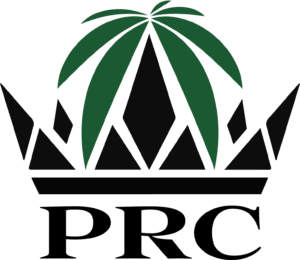PSYCHEDELICS ARE ALL SET TO POUNCE ON MENTAL HEALTH. BUT IF YOU DON’T HAVE SPIRIT, YOU CAN’T HEAL
While the past 60 years have certainly obscured it, psychedelics were once explored for a plethora of mental health disorders, including a few that would shock people.
Childhood schizophrenia, autism, addiction — considering the excesses and the resulting stigmas attached to them now, it’s hard for many to imagine ethically treating these illnesses with them today. But the research is out there for these and many more, and we’ve got a public mental health crisis in sore need of new breakthroughs. In short, the Medicine Box needs refilling, and an entirely new means of health maintenance needs to accompany it. That’s the project we face today.
ARE PSYCHEDELICS HELPFUL FOR RECOVERY?
This project has for the most part laid dormant for decades. Before the late ‘60s hit, LSD was the most studied psychiatric drug of its day. You’d be hard-pressed to distinguish Cary Grant’s proclamations about his psychedelic experiences apart from Joe Rogan’s if you were asked to match them to either personality. Even Alcoholics Anonymous founder Bill W. famously advocated for LSD’s use in the treatment of alcoholism, a treatment that at the time was convincingly advanced in clinical studies by the Canadian psychiatrist Dr. Humphrey Osmond (the man who also coined the term “psychedelic,” FYI). Of course, unless you’re part of the clinical trials or the Expanded Access program the Multidisciplinary Association for Psychedelic Studies has recently opened up for 50 PTSD-afflicted patients around the country, any therapeutic work being done with these substances is either happening in the underground, or after the fact. But it hasn’t been this open in years, and the exploration is underfoot. So while we simply can’t encourage people to take their chances with strangers in the underground — stories abound of people, particularly women, who’ve been burned there — we can encourage people to explore their options and prepare for some big changes in the decade to come. The estimates for psychedelics in clinical practice are anywhere from 5 to 10 years, so it will be here sooner than you think.
QUESTIONING MENTAL HEALTH CARE
As longtime blog readers know, you don’t need to sell me too strongly on an alternative to the SSRIs and benzodiazepines that are usually prescribed for practically everything nowadays. Matter of fact, most of the big boys throwing money into companies like Mind Med, which is looking to go public on the Canadian Stock Exchange in March, are betting that psychedelics will turn the page on the Prozac era. “They might be better than nothing, but there are studies that indicate continuous use of benzos and SSRIs make you worse. They definitely make you addicted,” says Christian Angermayer, who is investing in both Compass Pathways and MAPS for their psilocybin and MDMA trials. “It shows that went the wrong way .”
God knows that I’d rather not see psychedelics go the way of Big Cannabis, where the people who have kept it alive the longest getting shafted in favor of wealthy players who care little about the grassroots culture — whether that be indigenous tribes who are used to seeing their plant wisdom co-opted by pharmaceuticals for big bucks or those up here in the States who have gone it alone. These plants, whether they’re cannabis, rosehips, valerian, psilocybin, or chamomile, have an altogether different agenda for our lives, and the closer we can get to their unique place of healing, the better. My mentor Michael Hollister and my sister, who works as a mental health-focused nurse practitioner, both have declared their own frustrations with the system, and Michael even left it out of disgust for what he had seen. They know their patients deserve more and often aren’t getting the relief they seek. For such a system to integrate psychedelics successfully, it will have to comprehensively reckon with its own historical shortcomings.
For what it’s worth, I have never taken psychedelics therapeutically, although I have met a person who once practiced it, and counted a few very successful businesspeople as his former clients. Considering that and my own 12-step experience, I’d go for someone who not only had some serious therapeutic chops, but some serious spiritual breakthroughs under their belt as well, and DEFINITELY some psychedelic experiences as well. You will need an experienced sherpa to guide you to the mountaintop you need to climb, and no doubt, those who excel in this work will shape the mental outlook of a legion of people looking to transcend the depression and anxiety that plagues our era.
Of course, balancing accountability with diversity will be the most crucial balancing act. Obviously, especially on the tail end of the opioid epidemic, there need to be strong safeguards in place for those pursuing therapy. But that shouldn’t be the only game in town. Churches in this country, such as the Native American Church and União do Vegetal approach psychedelic use in their own way, and I strongly believe that diversity in treatment is important. Not every community will be well-served by the pharmaceutical approach, which is currently examining microdosing and other non-hallucinogenic variants of these substances. In some cases, it’s engaging in questionable historical revisionism to achieve its goal. Whether taking the trip out of psychedelics will be effective or not is something that remains to be seen, but ultimately, if you’re not working with spirit, you simply cannot heal, end of story.
THE RECOVERY FACTOR
My experience with 12-step, and in particular Alcoholics Anonymous, is personal and ongoing. It is, for me, a spiritual program that requires a simple desire to change one’s life and that only a “greater power” can restore us. However, not everyone is willing to drop the ego that can allow this “greater power” to take the wheel. Believe it or not, stopping drugs and alcohol is the easy part; the hard part is being triggered when certain people or situations rekindle the desire to drink or do drugs. When that happens, the ego resists. Psychedelic experiences, if they’re powerful enough, deflate the ego, and in the moments when they have successfully countered addiction, they’ve seized away from the desire at the heart of an ego’s resistance. HOW they do this is not well understood.

Mainstream 12-step, of course, has continued to resist alternative therapies like cannabis and psychedelics even as they allow for prescription SSRIs and benzos — which as noted above have their own dependency issues. However, there are mavericks like High Sobriety and Psychedelics in Recovery that are charging forward regardless. I do not doubt that despite whatever resistance they may face, just like the extreme skiers I grew up adoring, taking these risks means they will learn something their peers won’t.
AA for me is my anchor to the recovery community. It is where I provide service to others in that community, while also maintaining my sobriety; however, outside of those rooms, I fill up my box of medicine with other healing modalities. You know what they are: music, food, nature, mindfulness, collaboration, and community. As our society’s most accessible psychedelic, cannabis intersects with all of these pillars in ways we are only beginning to determine. Other plant medicines are beginning to join it, and the messages they can give us can often be profound.
To prove this, I’ll leave you with a discussion I recently held with a professional artist who had worked with ayahuasca. For years she had been trapped in a loveless marriage and an assumption that she presumed could only be sold in certain galleries. During her vision, she imagined herself as a tiny speckle nested within a speckle interspersed within an endless array of similar speckles. This inspired her to readjust her creativity towards depicting this unity, rather than yoking herself to the demands of the commercial art world. This breakthrough had done wonders for her mental health and happiness, and as long as the breakthrough, rather than the escape, is your goal, there is no doubt your journey will be a healing one, no matter how difficult or intense.

Medicine Box is your one-stop-shop for the highest quality cannabis goods, heritage, and wisdom. Together, we share a common goal of cannabis culture preservation and ongoing psychedelic and entheogen education.
Read more Medicine Box / Beard Bros collaborations HERE
You can learn more about Medicine Box – and sign up for a free course on terpenes – HERE

















